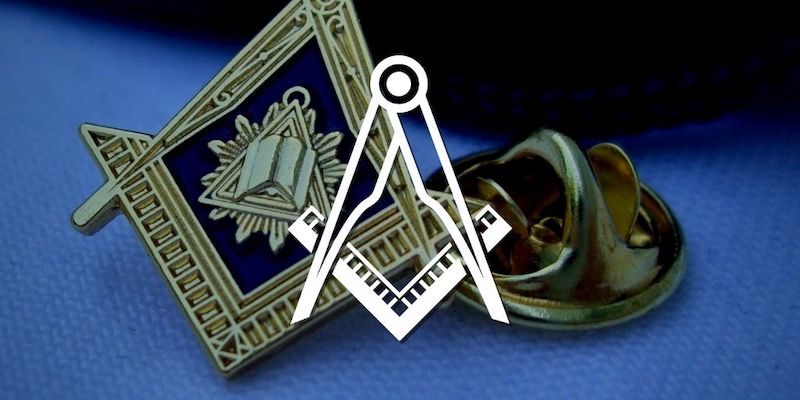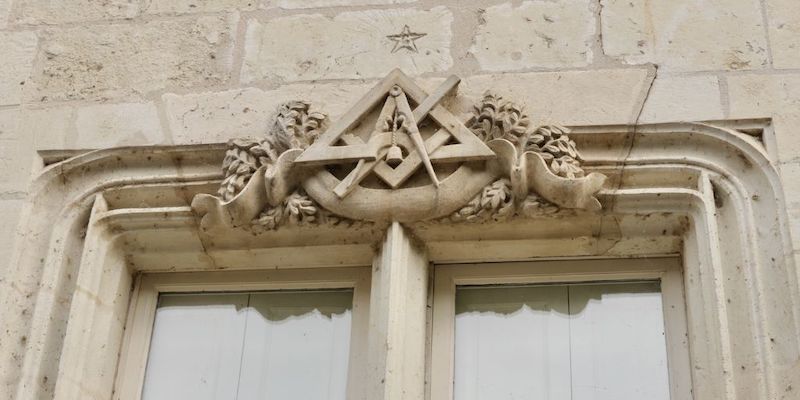In the realm of Freemasonry, where symbolism, rituals, and spiritual teachings intertwine, the role of the Chaplain holds a significant place.
The Chaplain is a figure of guidance and inspiration, providing moral and spiritual support to the members of the Masonic lodge.
In this article, we aim to shed light on the role of the Chaplain in Freemasonry, offering a simple and straightforward explanation of their responsibilities and significance within the fraternity.
TLDR: The role of a Chaplain in Freemasonry is an important one, as it involves providing spiritual guidance and support to members of the organization. The Chaplain is responsible for leading non-denominational prayers at meetings, degree rituals, and meals, as well as offering comfort and solace to those in need.

The History of Chaplains in Freemasonry
Origins of Chaplains in Freemasonry
The role of Chaplain in Freemasonry dates back to the earliest days of the organization.
Operative Masons building the cathedrals and castles turned to ordained clergy in their devotion to God.
As the organization evolved, the role of the Chaplain remained an essential part of the Masonic tradition.
The Role of Chaplains in Early Freemasonry
In the early days of Freemasonry, Chaplains were responsible for leading prayers and religious services during Lodge meetings.
They were also responsible for offering spiritual guidance and counseling to members of the Lodge.
The Chaplain was often seen as a trusted confidant and advisor to the members of the Lodge.
Changes in the Role of Chaplains over Time
As Freemasonry evolved, the role of the Chaplain changed to reflect the changing needs of the organization.
While the Chaplain still leads prayers and religious services during Lodge meetings, they are now also responsible for providing support to members and their families during times of illness, hardship, and bereavement.
Today, the Chaplain is a vital part of the Masonic community, providing comfort, guidance, and support to members in need. They are a symbol of the organization’s commitment to brotherhood, charity, and service to others.
The Modern Role of a Chaplain in Freemasonry
In modern speculative Freemasonry, the Chaplain is responsible for providing spiritual guidance, support, and comfort to members of the Lodge and their families.
The Chaplain is also responsible for ensuring that the Lodge’s traditions and values are upheld and that the Lodge remains a place of brotherhood, charity, and enlightenment.
Responsibilities of a Chaplain in a Lodge
The primary responsibility of a Chaplain in a Lodge is to provide spiritual guidance and support to members.
This includes leading prayers, offering blessings, and providing comfort to members who are going through difficult times.
The Chaplain is also responsible for providing moral guidance and support to members, ensuring that they uphold the values and traditions of the Lodge.
The Importance of a Chaplain in a Lodge
The Chaplain is an essential part of the Lodge, providing spiritual guidance and support to members and their families.
The Chaplain is also responsible for ensuring that the Lodge remains a place of brotherhood, charity, and enlightenment.
The Chaplain’s role is crucial in maintaining the Lodge’s values and traditions and ensuring that the Lodge remains a place of moral guidance and support.
How to Become a Chaplain in Freemasonry
To become a Chaplain in Freemasonry, a member must be appointed by the Worshipful Master of the Lodge.
The member must have a strong understanding of the values and traditions of the Lodge and be committed to upholding them.
The member must also have a strong spiritual background and be able to provide spiritual guidance and support to members of the Lodge.
The Qualities of a Good Chaplain in Freemasonry

To be an effective Chaplain, one must possess certain qualities that enable him to connect with the brethren and provide them with the help they need.
Compassion and Empathy
A good Chaplain in Freemasonry must have a compassionate heart and be empathetic toward the needs of others.
He must be willing to listen to the brethren’s concerns and offer them comfort and support in times of need.
A Chaplain who is approachable and caring can help create a sense of community within the Lodge.
Spiritual Knowledge and Understanding
The Chaplain in Freemasonry must have a deep understanding of spiritual matters and be able to offer guidance to the brethren on matters of faith and morality.
He should possess knowledge of various religions and be respectful of the beliefs of others.
A Chaplain who can provide spiritual guidance can help the brethren grow in their faith and develop a deeper understanding of their purpose in life.
Leadership and Communication Skills
A Chaplain in Freemasonry must possess strong leadership and communication skills.
He must be able to lead by example and inspire the brethren to live a virtuous life.
He must be able to communicate effectively with the brethren and be able to convey his message in a clear and concise manner.
A Chaplain who can effectively communicate can help the brethren understand the importance of spirituality and morality in their lives.
In conclusion, the role of a Chaplain in Freemasonry is a vital one.
The Chaplain is responsible for leading the Lodge in prayer and providing spiritual guidance to its members. They also serve as a liaison between the Lodge and its members, providing support and assistance to those in need.
The Chaplain’s role is not limited to just the Lodge itself, as they may also be called upon to provide support to the widows and orphans of Lodge members.
It is important to note that the Chaplain’s role is not limited to any particular religious denomination. Rather, the Chaplain must be able to provide spiritual guidance to all members of the Lodge, regardless of their religious beliefs.